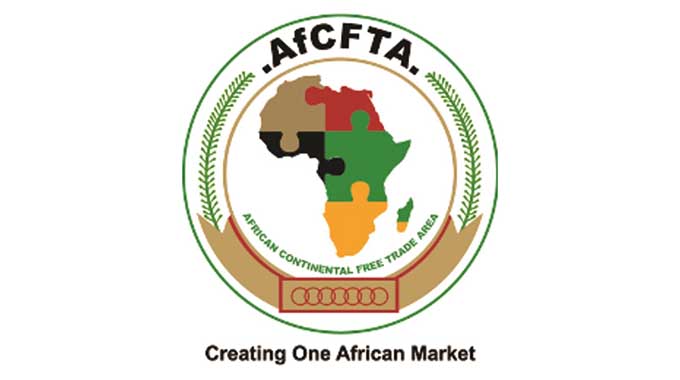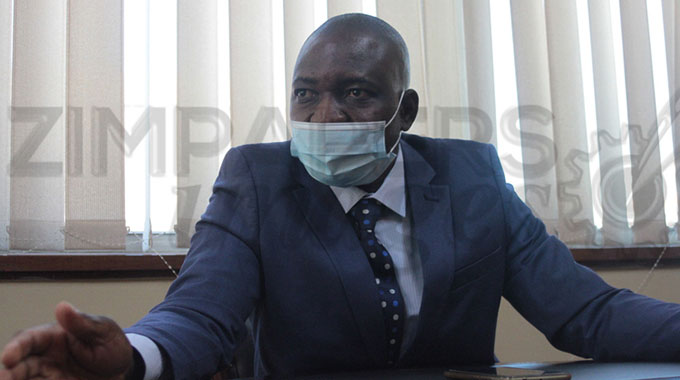AfCFTA, the levers to building the Africa we want

Tafara Shumba
Correspondent
For centuries, Africa has been viewed as a dark continent and everything associated with it is beheld with condescension. Its culture is devilish and its people are a barbaric lot in need of a white man’s civilisation.
The African continent only features on the Caucasian agenda when they want resources that God abundantly bequeathed it.
The white man has been funding wars in the continent with a view to causing chaos so that they can loot the continent’s God given resources with ease.
He thrives on turmoil which has been his key enabler to his despoliation. There are active armed conflicts in Libya, the Democratic Republic of Congo, Burundi, Mozambique, Somalia, South Sudan, Sudan, Mali, Niger and Central African Republic among others, in which the white man’s hand is visibly existent.
In his book, ‘The Looting Machine,’ investigative journalist Tom Burgis explores why resource-rich states have citizens who are blighted with extreme poverty and violence.
He noted that the global supply chain still relies on cheap raw materials from Africa, which makes Western governments and consumers complicit in the crimes around resource extraction.
The resources that are pillaged from Africa make the West more moneyed than the owner of the resources, Africa. The same money comes back to Africa not to fund the continental development agenda.
It funds wars, regime changes and it is used to cause antagonism among African states. That money has been dangled to some African states to toe the line, a development that has impeded the full integration of Africa.
A fragmented Africa has compromised its trading position on the global market. Extractive resources, in their raw form, have been sold to the West for a song. Africa cannot determine the price of their natural resources.It is given a take-or-leave option by their Western buyers and because Africa excessively depends on raw material exports, they are left with no choice but to accept the exploitative prices.
Even the investment that Africa is getting from the West, borders on a new form of colonialism. In his article titled ‘Africa is not poor, we are stealing its wealth,’ Nick Dearden, the director of a UK campaigning organisation, Global Justice Now explains how the West steals African wealth in the name of investment.
Dearden says although around US$161 billion goes into Africa annually in the form of loans, remittances and aid, there is also US$203 billion leaving the continent of which US$68 billion in mainly dodged taxes.
“Essentially multinational corporations steal much of this — legally — by pretending they are really generating their wealth in tax havens.
These so-called “illicit financial flows” amount to around 6,1 percent of the continent’s entire gross domestic product (GDP) — or three times what Africa receives in aid,” writes Dearden adding that there is also $30bn that these corporations “repatriate” — profits they make in Africa but send back to their home country, or elsewhere, to enjoy their wealth.
“The City of London is awash with profits extracted from the land and labour of Africa,” Dearden categorically revealed.
This relationship where the rest of the world is profiting more than most African citizens from the continent’s wealth cannot build the Africa we want.
The Africa we want cannot be build when there is an annual financial deficit of US$41,3 billion from the African countries where many people remain trapped in poverty. We cannot build the Africa we want when illicit financial flows account for US$68 billion a year, three times as much as the US$19bn Africa receives in aid. The Africa we want cannot be built when the continent pays more than half of the principal loan in debt interest. For instance, African governments received US$32bn in loans in 2015, but paid US$18bn in debt interest.
Africa must disengage from such manipulative relationship. The African Continental Free Trade Area (AfCFTA), which set off in January this year, is a progressive step towards total economic and political emancipation.
AfCFTA, which is the largest free trade area in the world, has various benefits for the continent. The free trade area seeks to promote andincrease intra-African trade by 52 percent by 2022. The intra-African trade is currently at 18 percent while intra-Asia and intra-Europe trades are estimated at 59 and 69 percent respectively.
AfCFTA strives to create a single market that will deepen economic integration of the continent. The platform will allow African businesses to expand and grow since they will trade on a huge market with an aggregate population of 1,3 billion and a combined gross domestic product (GDP) valued at US$3,4 trillion. That growth and expansion will also increase the GDP and wealth of the continent.
Africa, through the AfCFTA, will demonstrate to the world that it is emerging as a leader on the global trade agenda.
The continent will rid itself of the Western Foreign Direct Investment that bears a resemblance to the new form of colonialism. The free trade area will boost Africa’s trading position on the global market by strengthening the continent’s common voice and policy space in global trade negotiations.
With this economic continental body in place, the status quo where a rich continent has poor people will be a thing of the past.
Africa is not poor and the AfCFTA will enable African countries to best serve the needs of their people, rather than simply being cash cows for western corporations and governments. According to the World Bank, the AfCFTA presents an opportunity for African countries to bring 30 million people “out of extreme poverty and to raise the incomes of 68 million others who live on less than US$5,50 per day.”
The ordinary African citizen stands to benefit from job creation that will be occasioned by the economic growth and expansion.
One of the general objectives of the AfCFTA is to aid free movement of people and capital.
Countries such as Zimbabwe which are awash with skilled manpower stand to benefit more as this skilled manpower will be on demand across the continent.
Zimbabwe had already positioned itself in anticipation of this development through the introduction of Education 5.0 that lays emphasis on technical and entrepreneurial skills.
The AfCFTA creates a healthy competition that will be beneficial to both manufacturers and consumers. This competition will force firms to manufacture high quality and cheap goods. The competition will reshape the market.
Monopolies which used to short-change customers will have to shape up or will be forced to ship out. If companies in various member states had not yet readied themselves for this new operating environment, they had better do it now.
The AfCFTA requires that member states remove tariffs from 90 percent of their goods. Although tariff liberalisation may result in the loss of tariff revenue for some African states, the move will increase production.
This is so because goods and services without tariffs ordinarily become cheap thereby increasing demand which subsequently increase production. This calls for the manufacturers to be innovative.
They must start to diversify and produce new products for the expanded market. This will enhance their competitiveness within the continent and on the global market.
The time is now for Africa to disengage from the manipulative trading relationship with the West.
There is not going to be another opportunity for Africa to integrate. Africa is not poor, what it only needs is to stop the rest of the world from systematically looting it, and the AfCFTA is one way of doing so. While the form of colonial plunder may have changed over time, its basic nature remains unchanged. Africa needs to know this.









Comments